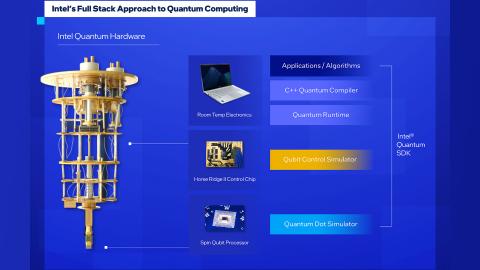Quantum Computing and AI: Partnering to Transform Tech - Open ...
Quantum computing has the potential to significantly transform artificial intelligence due to its exponentially faster problem-solving capabilities and capacity to process enormous quantities of data compared to classical computers.
The Strength of Quantum Computing
The strength of quantum computing resides in its capacity to utilise qubits, or quantum bits, which can exist in numerous states concurrently. This parallelism brings about a paradigm shift in artificial intelligence by aiding the swift implementation of algorithms that require significant computational resources on traditional hardware.

Architectural Components of Quantum AI Systems
Quantum AI systems are composed of several architectural components that integrate AI and quantum computing techniques in a synergistic manner. By utilising principles such as superposition, entanglement, and interference, the quantum processing unit (QPU) executes quantum algorithms and conducts quantum operations on qubits. The QPU is the central component of the system.
Quantum Software Stack
The quantum software stack comprises libraries, programming languages, and development frameworks specifically designed for artificial intelligence applications. Qiskit, TensorFlow Quantum, and PennyLane are a few instances of frameworks that aid in the formulation and optimisation of algorithms.
Quantum Data Structures
Quantum data structures refer to algorithms and structures that have been specifically engineered to efficiently represent and manipulate quantum data. These frameworks facilitate the manipulation, retrieval, and storage of quantum data, which is of the utmost importance for tasks involving quantum machine learning and pattern recognition.

Challenges and Limitations
Notwithstanding its potential, quantum AI encounters a number of obstacles that impede its extensive implementation and scalability. Robust error correction techniques and fault-tolerant quantum hardware are required for quantum systems to guarantee the dependability and precision of computations.
Applications of Quantum AI
Quantum AI has exhibited encouraging implementations in various domains such as drug discovery, financial modelling, cybersecurity, and energy optimisation. Quantum AI holds immense promise for the future of computing and artificial intelligence.

Quantum Neural Networks
Quantum neural networks (QNNs) represent a fascinating intersection of artificial intelligence and quantum mechanics. They have immense potential for applications in various domains, despite significant challenges in building and controlling large-scale quantum computers. QNNs leverage the power of qubits and quantum operations to tackle intractable problems.
Future of Quantum AI
Further progress in quantum hardware, hybrid quantum-classical approaches, and the commercialisation and adoption of quantum AI solutions are expected to revolutionise various sectors as quantum computing technologies mature.










